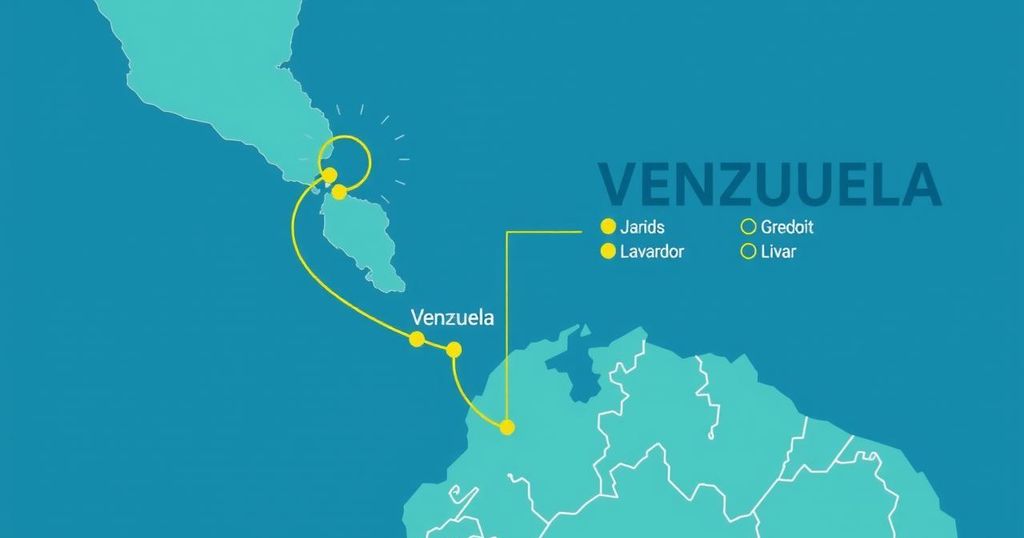World news
ARAGUA, ARKANSAS DEMOCRAT, ARKANSAS DEMOCRAT GAZETTE, ASIA, BOASBERG, BRAZIL, BUKELE, DISTRICT COURT, EL SALVADOR, JUSTICE DEPARTMENT, LAW, LEGAL ISSUES, MARCO RUBIO, NAY, NORTH AMERICA, PHILIPPINES, POLITICS, PRISON SENTENCE, SALVADOR, SOUTH AMERICA, TREN DE ARAGUA, TRUMP, TRUMP ADMINISTRATION, U. S, U. S. DISTRICT COURT, UNITED STATES, WASHINGTON
Amira Khan
0 Comments
Trump Administration’s Controversial Deportation of Venezuelans to El Salvador
The Trump administration has deported hundreds of Venezuelans to El Salvador, allegedly violating a federal court’s order. This deportation marks the beginning of efforts to expedite deportations of suspected gang members under a controversial executive order. Mixed reactions from international entities highlight the ongoing legal and ethical issues involved in these actions.
The Trump administration has initiated the deportation of hundreds of Venezuelans, who are alleged gang members, to a notorious prison in El Salvador, despite a federal judge’s order attempting to block such actions. This marks a significant move amid evolving interpretations of U.S. immigration law, with federal courts beginning to address the ramifications of the administration’s newly introduced executive order intended for expedited deportations.
On social media, El Salvadoran President Nayib Bukele shared a video showing handcuffed individuals being escorted from a plane to prison. The administration seeks to implement a controversial arrangement with El Salvador, leveraging the Alien Enemies Act of 1798 to facilitate arrests and expedite deportations without customary legal safeguards typically applied in such immigration cases.
Judge James Boasberg of the U.S. District Court issued a temporary restraining order against such deportations ahead of the flights. He specifically instructed the government not to proceed with the deportation of five Venezuelan men who were central to the ongoing legal disputes. There are concerns that the timing of the deportation flights violated the judge’s directive due to a time zone difference.
The government of Venezuela publicly condemned these deportations as violations of U.S. and international law, asserting that invoking the Alien Enemies Act represents a crime against humanity. U.S. Secretary of State Marco Rubio claimed on social media that two MS-13 leaders, as well as numerous members of Tren de Aragua, were sent to El Salvador, which purportedly accepted them into their correctional facilities at a fair price.
The deported individuals included Cesar Humberto Lopez-Larios, a suspected top MS-13 leader, and Cesar Eliseo Sorto-Amaya, wanted for serious charges in El Salvador. The legal proceedings against both men in the U.S. concluded with their charges being dismissed shortly prior to their deportation, as documented in recently unsealed court records.
In summary, the Trump administration’s recent actions regarding the deportation of Venezuelans to El Salvador raise significant legal and ethical questions. Despite a federal court’s order to halt such deportations, the administration proceeded with the transfers, asserting new policies aimed at rapid expulsions under the Alien Enemies Act. The responses from both El Salvador and Venezuela, alongside ongoing legal challenges, underscore the complexities surrounding immigration enforcement and international law.
Original Source: www.arkansasonline.com




Post Comment